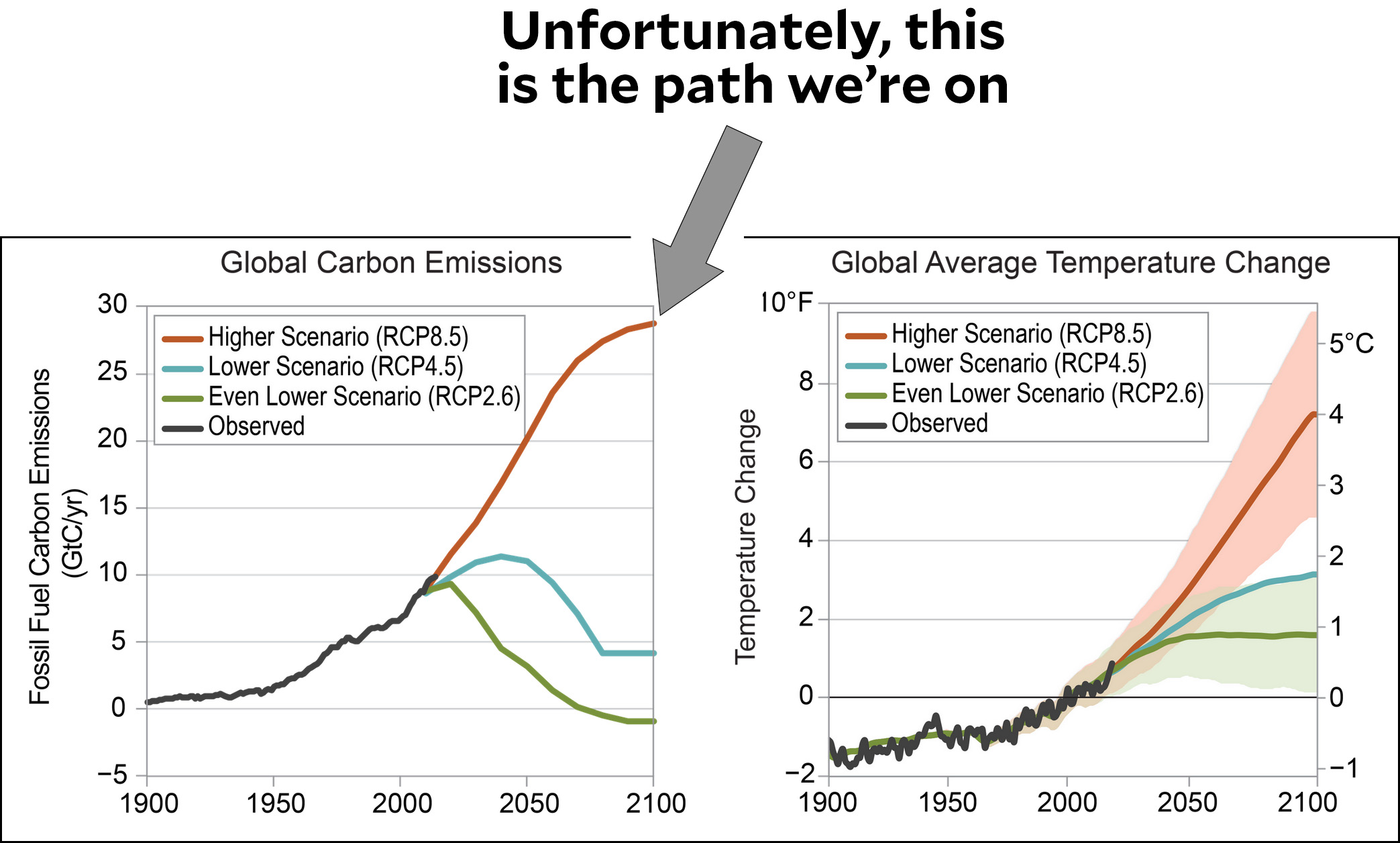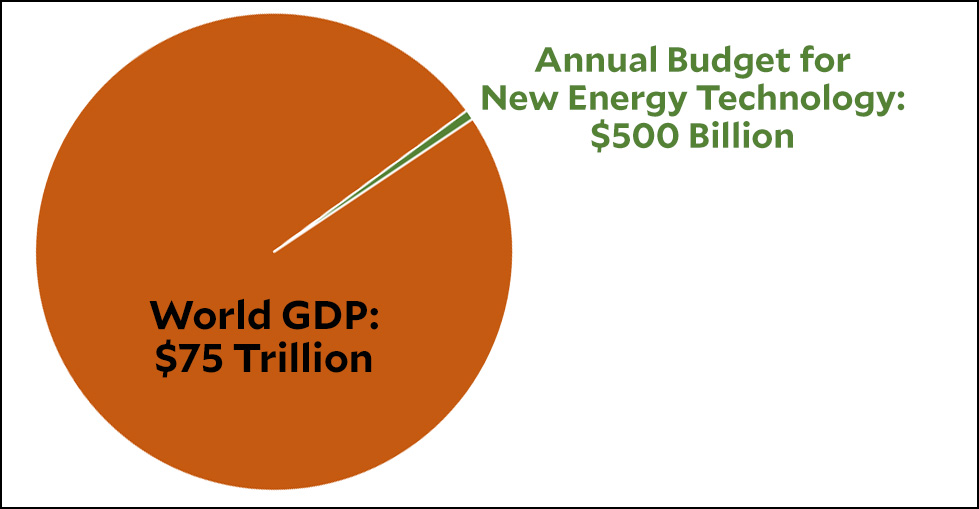I don’t know for sure if the rural/working class revolt in France is more about fuel taxes, reduced speed limits, or just a general dislike for that city slicker Emmanuel Macron. But higher diesel prices are part of it, so yesterday Macron backed off his new fuel taxes, which were explicitly imposed as a way of reducing fuel use in response to climate change. This all happened in a country that’s pretty progressive on environmental issues.
Meanwhile, Canada is one of the greenest countries you could imagine. But does that mean they’re going to stop drilling for oil in their famous tar sands? Oh my no. Just the opposite. Likewise, Jerry Brown is America’s greenest governor, but that doesn’t mean he’s willing to put limits on oil drilling in California.
Hypocritical? Sure. But keep in mind that this is about as good as it gets. In the less developed countries, they’re barely even willing to adopt a veneer of caring about climate change if it requires any sacrifice at all. China is still all-in on coal and India has little interest in doing anything that might hurt economic growth by a tenth of a percentage point.
And the United States—well, I hardly have to say anything about the United States, do I? We’re the richest big country in the world, and we probably have the strongest capacity of any nation on earth to generate huge amounts of solar and wind power with only modest sacrifice. But we don’t. We had a green president for a few years, but Republicans in Congress refused to consider even a limited plan to raise the cost of dirty energy. Today we have a president who actively prefers coal mining and oil drilling to clean energy because his base works in those industries.
I could go on. But what’s my point? Just this: the danger of future climate change is now about as clear as it’s going to get. It’s not a matter of computer models anymore. Just look around you and the evidence is all there: wildfires, droughts, hurricanes, desperate migrants, the Northwest Passage opening up. Those will get slowly worse over the next few decades, but they’re already bad enough to be clearly visible. And yet there’s still no real willingness to reduce fossil fuel use anywhere. Not if it costs more than a trivial few cents anyway, and even at that it’s hard to get the public to approve it unless that cost is buried somewhere.

Like most of you I want to keep fighting to reduce fossil fuel use, but at the same time I’ve come to recognize the reality that it’s not going to happen. Not via carbon taxes or lots of hectoring, anyway. As Chris Hayes has pointed out, there’s about $20 trillion worth of fossil fuels still left in the ground right now. Knowing what you know about human nature, what are the odds that anyone is going to leave all that money there? About zero, right? Hayes compares it to the $10 trillion economic value of slaves in the South on the eve of the Civil War, and points out that this is why the South would never, ever voluntarily give up chattel slavery. It took four years of the bloodiest war in history to finally force their hand.
I would say the same is true today: the owners of fossil fuels will never, ever voluntarily give up their reserves. Something on the order of World War II might force them to do it, but who would be fighting whom? There are no opposing sides in this war.
Bottom line: there is no feasible way to keep all that carbon in the ground merely through regulation or fuel taxes or whatnot. It might help a bit, which means we should keep trying, but in the end it won’t work except on the margins. I don’t like this conclusion any better than anyone else, but I think it’s correct.
So what’s the answer, aside from frying the planet? That’s simple: we need a miracle. And we should be spending vast sums of money to get one.
The “miracle,” in this case, is anything that either (a) produces cheap, clean energy in abundant quantities, or (b) safely removes carbon from the atmosphere at scale. That’s it. The former would keep fossil fuels in the ground by reducing its economic value, while the latter would halt global warming even if we burn every last gram of coal and oil on the planet.
That’s what we should be spending our money and emotional energy on—and not in our current nickel-and-dime way. I’d say we need a Manhattan Project-like commitment and annual spending of around 1 percent of GDP. And that’s global GDP I’m thinking of. Call it $500 billion in round numbers. The US share would be around $200 billion or so. Every. Single. Year.

We’ve already made significant progress on wind and solar, and there are other renewable energy sources out there too. But they aren’t enough. There are theoretical limits to how much solar power we can harness and practical limits to how much wind power we can capture. What we need is some kind of massive breakthrough that we can barely imagine yet. I have no idea what it might be, but I’m willing to bet it’s out there.
And there’s actually a chance of this working. The public hates higher taxes and stricter regulations, but they love spending money. If world leaders got together and declared this a war, everyone would cheer. And both national leaders and their publics would adore the idea of hundreds or thousands of huge research projects springing up all over the world to invent valuable new technologies.
It might even work. That’s the best I can honestly say about it. But even at that, it’s still a lot better odds than trying to keep all those fossil fuels in the ground.













